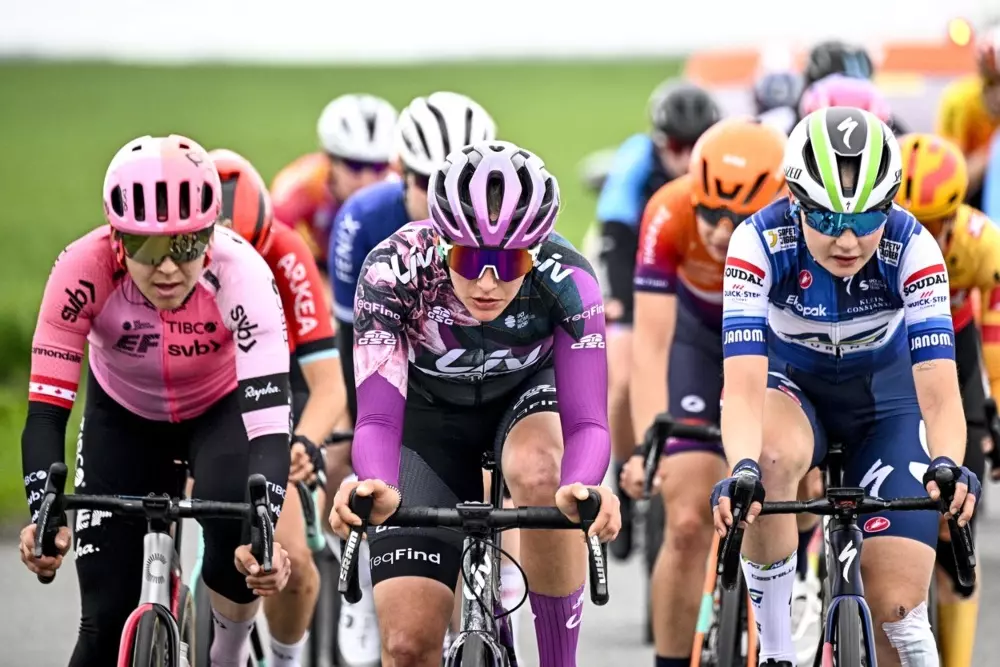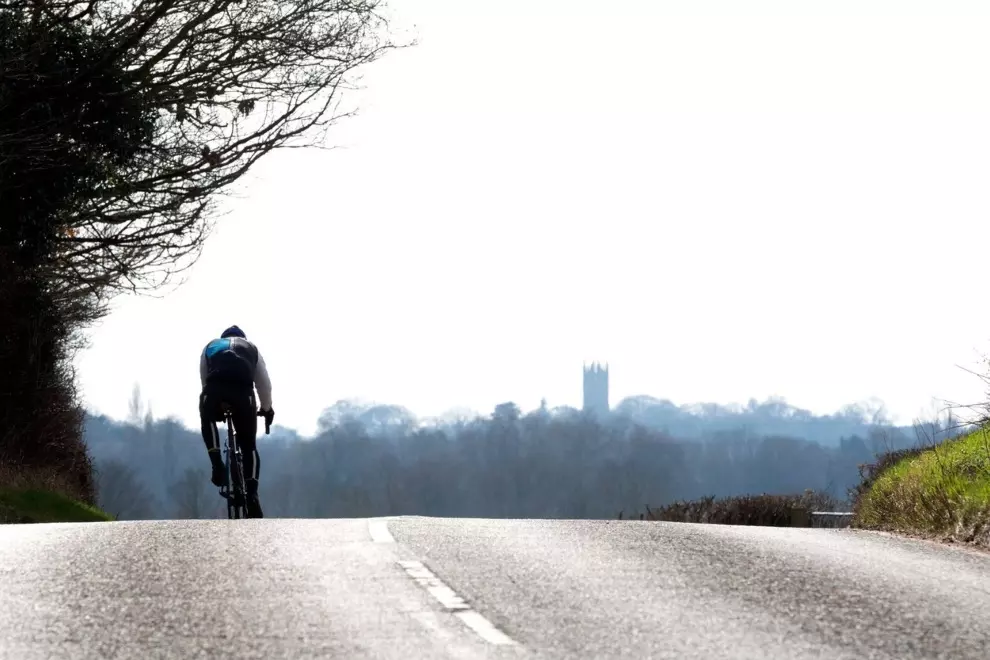Leaving behind Italian Katia Ragusa of LIV Racing and Fenix-Deceuninck rider Marthe Truyen of Germany, Jackson clinched the greatest victory of her cycling career to roaring applause at the Roubaix Velodrome.
The Paris-Roubaix Femmes, famously known as the “Hell of the North,” is lauded for its rough terrain, especially during rainy days, when the road becomes slick and treacherous for the riders. This year, it was no different. With rain during the week and bright sunshine on the day, the course was set to test everyone’s nerves.
But that didn’t stop Alison Jackson, one of the 18 outsiders, from breaking away in the early stages of the race. She maintained her lead for the rest of the event, holding off an intense chase that fell just short. The victory left the Canadian rider lost for words. “It’s unreal. I’m lost for words. It’s a dream come true,” she said.
How it happened
The breakaway came in fierce, and the gap between the peloton and the lead group kept widening, with the breakaway holding an advantage of over five minutes at one point. Most of the pre-favourites were stuck in the peloton, but Lotte Kopecky of SD Worx broke free of the peloton with about 51K to go. A few others joined in, including Pfeiffer Georgi of Team DSM and defending Paris-Roubaix Femmes champion Elisa Longo Borghini of Trek-Segafredo.
With the chasers making up some ground on the lead group, Longo Borghini lost control on a slippery section of cobbles with about 38K to go, causing a crash involving 17 of the 18 chasers. Eventually, an elite group of chasers got organised and put on a furious acceleration to attempt to catch the breakaway. With under 10K to go, the advantage dwindled to 10 seconds, and it looked like the catch would happen after all.

A fairytale end for Jackson
Ultimately, though, the remaining seven riders managed to hold off the chasers. Finally, the breakaway pack entered the Roubaix Velodrome, and it was clear that it would be a sprint between only them for the win. Jackson, who had been pulling more than her fair share of the weight to keep the breakaway free, was near the front and launched a sprint with all she had.
And wow, did she have it in her! The 2021 Canadian road race champion found enough, in the end, to take what is undoubtedly the most significant victory of her cycling career. “I could hardly believe it when I got across the line,” said the 34-year-old, “I’m going to use whatever force I have left to stagger up to that podium. I am so, so ready for this.”
Give us full coverage, please!
Now, here’s the thing—in addition to this having been a great race that proves just how surprising and dynamic women’s racing can be, it also served as a reminder of how badly we need full coverage of women’s events. Although the Paris-Roubaix Femmes is only in its third year, it has already gained in length, difficulty, and stature since Lizzie Deignan won the first edition in 2021. However, the women’s race has yet to receive equal coverage compared to the men’s race—which saw full coverage Sunday starting at 5 a.m. EDT.
Unfortunately, coverage of the women’s 145.5K race started with just under 80K to go, causing fans to miss the early break that ultimately defined much of the race. This isn’t the first time that key moves have been cut in women’s cycling coverage, either. The same thing happened during the penultimate stage of last year’s Tour de France Femmes when coverage started after Annemiek van Vleuten and Demi Vollering were already way ahead of the rest of the field. With the situation as it is, it will remain challenging for the sport to recruit new fans.
We have said it once, and it looks like we will have to say it again — the women keep giving us great races to watch, let’s give them the attention they deserve!
In the meantime, though, we congratulate Alison Jackson on her incredible achievement! We can’t wait to see what she’ll do next and will be keeping you up to date as the season continues to unfold in surprises.




